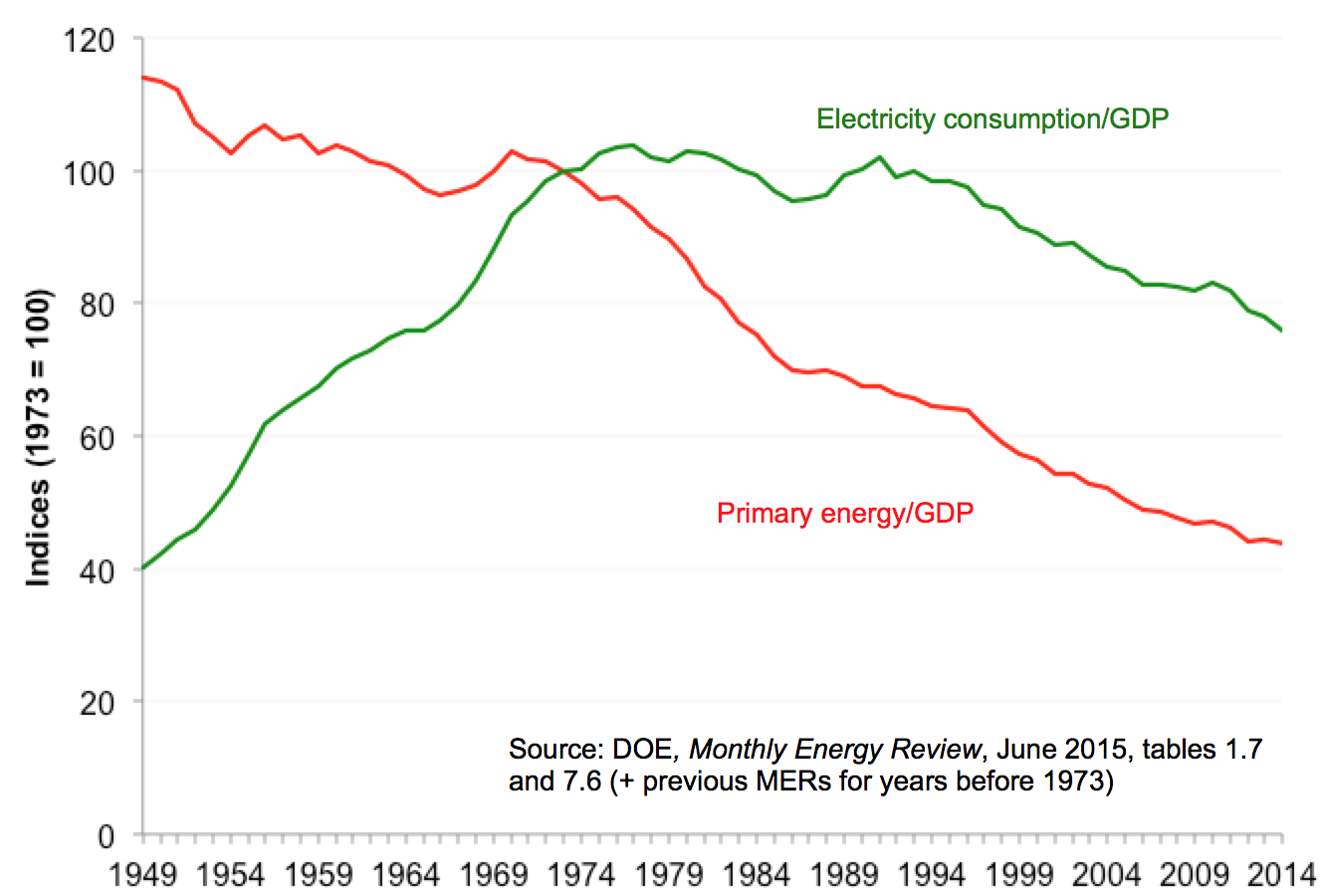My webinar for DOE + EPA today: Why we can’t accurately forecast the future

Graph of energy and electricity/GDP indices taken from Hirsh and Koomey 2015 (subscription required). The graphs illustrate structural changes in the relationship between energy and economic activity that have confounded modelers in the past and will no doubt do so in the future.
Today I gave a webinar for EPA and DOE staff titled “Past performance is no guide to future returns: Why we can’t accurately forecast the future”. I first gave a version of this talk at the Energy and Resources Group at UC Berkeley on September 28, 2011. It built upon our Climatic Change article (with Irene Scher) titled “Is accurate forecasting of economic systems possible?” (subscription required), and grew into Chapter 4 of Cold Cash, Cool Climate: Science-based Advice for Ecological Entrepreneurs, titled “Why we can’t accurately forecast the future” and my open access ERL article titled “Moving beyond benefit-cost analysis for climate change”.
Here’s the talk description:
This webinar explores why (with few exceptions) models of economic systems do not yield accurate predictions about the future. Predictions can be accurate when systems have consistent structure (geographically and temporally) and when there are no surprises, but neither of these conditions holds for virtually all economic systems. Physical systems can exhibit structural constancy, so predictions based on physical sciences can be accurate (barring surprises). The webinar also explores implications of this irreducible uncertainty, introduces ways to cope with it, and discusses responsible use of economic modeling tools in the face of such modeling limitations. The talk explores these issues using examples of forecasts of US primary energy use, oil prices, electricity demand, and the costs of nuclear power.
You can download the slides here.
Addendum, June 1, 2016: Some of the participants in the workshop wanted to understand why economic modelers have a hard time accepting the thesis of my talk. I pointed them to a November 30, 2014 NYT blog post by Paul Krugman about the sociology of economics that is revealing. The Krugman post refers to a study that will be fascinating for anyone interested in how the economic community operates.
